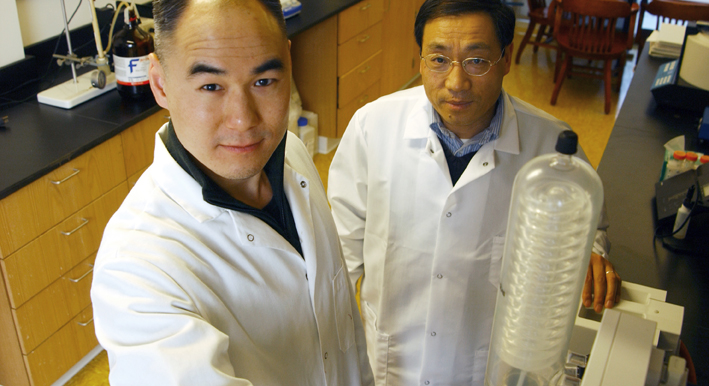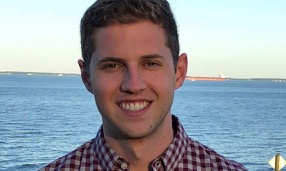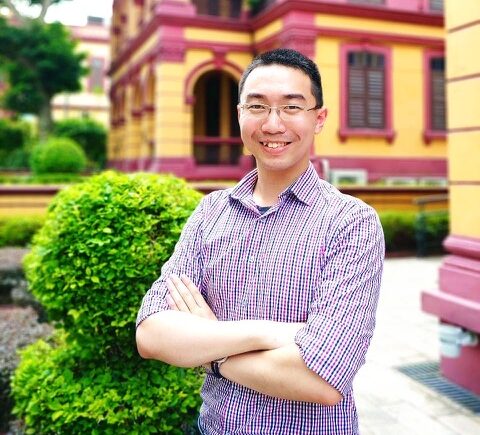Students who have set their sights on applying to med school and health professional schools now have another option through the University of Vermont’s Post Bacc Premedical Program.
Post baccalaureate students interested in applying to medical school and seeking to strengthen their academic credentials as well as access higher level courses may apply to the UVM Post Baccalaureate Premed Program’s Advanced Science Track. They need a recommended CGPA of 3.0 or higher to apply.
For over 13 years, the Post Baccalaureate Premedical Program program has had a Preparatory Science Track, which is open to those with bachelor’s degrees and strong academic records who lack the core science courses needed for admission to medical or professional schools. The recommended CGPA for that track is 3.2 or higher.
Both post baccalaureate tracks appeal to students who are interested in applying to medical schools, and are dedicated to pursuing careers in medicine and health care, including physician assistant, osteopathic, chiropractic, nurse practitioner, dental, veterinary, public health, physical therapy, naturopathic and other health-care programs.
A 90% Acceptance Rate to Medical, Health Schools
 UVM’s Post Baccalaureate Premed Program has seen a 90 percent acceptance rate for students headed to medical schools and health professional schools.
UVM’s Post Baccalaureate Premed Program has seen a 90 percent acceptance rate for students headed to medical schools and health professional schools.
“That’s a very good rate,” explains Ginger Pressey, student services coordinator for University of Vermont Continuing and Distance Education. “They are accepted to medical schools all over the country. Since our program began in 1995, we have seen students matriculate at UVM, Dartmouth, Columbia, Harvard, Tufts, Northeastern, Johns-Hopkins, Cornell and many more colleges and universities.”
An Early Success Story
Alan Cook, M.D., was one of those students. After successfully completing the program in the 1990s and applying to medical school, he was accepted into the UVM College of Medicine, from which he received an M.D. in 2001. Cook now is a surgeon affiliated with Urgent Surgery Associates and the Baylor University Medical Center in Dallas, and he has 13 peer-reviewed scientific publications.
That’s a long road from his original degree and career: photography.
“Pursing a career in medicine is a very big decision to make,” Cook says. “I had already done a career, and to have to go all the way back to undergraduate college seemed overwhelming. Having an established program, the Post-Baccalaureate Premedical Program, to do all that made it less daunting.”
While enrolled in the Post Baccalaureate Premedical Program, Cook also volunteered for the Essex Rescue Squad – something his advisor suggested for expanding his experience and strengthening his medical school application.
Volunteer Opportunities and Linkage Agreements

With its location in Burlington, the largest city in Vermont, UVM’s Post Bac Premed Program offers plenty of opportunities for students to volunteer in social services, advocacy and health care organizations. The program’s connections to the top-ranked UVM College of Medicine and University of Vermont Medical Center, a Level-I Trauma center, also benefit students.
“We are close to University of Vermont Medical Center [formerly Fletcher Allen Health Care], located next door to the College of Medicine. That offers students a lot of opportunities to connect with doctors, nurses and other health care practitioners, to volunteer at the medical center, to attend lectures and to obtain research opportunities,” Pressey says. “We are fortunate to have close connections to the UVM College of Medicine, which is right on campus and offers a linkage agreement. If you maintain a certain grade-point average throughout our program, and you are able to meet all the requirements for a particular linkage program, then you are guaranteed an interview with the institution.”
The program also offers linkage agreements with the UVM Master’s Entry Nurse Practitioner Program, University of New England College of Osteopathic Medicine, University of New England Physician Assistant Program, Franklin Pierce Physician Assistant Program, and Albany College of Pharmacy and Health Sciences.
‘A Tight-Knit Community’
Currently, the Post Baccalaureate Premedical Program program has about 130 students at any given time. Most post baccalaureate students start in the summer and fall terms, although a few start in the spring.
“Some students come straight out of undergraduate school and then we have other students who have completed an undergraduate program or even a master’s program, then have gone on to work in a career for a decade or so, and then return to pursue our program,” Pressey explains. “Overall, the students in the Post-Bac Premed Program tend to be a tight-knit community. Many of them get together regularly and have potlucks and study groups.”
Are your sights set on applying to medical schools? Learn more about UVM’s Post-Bac Premedical Program at learn.uvm.edu.




